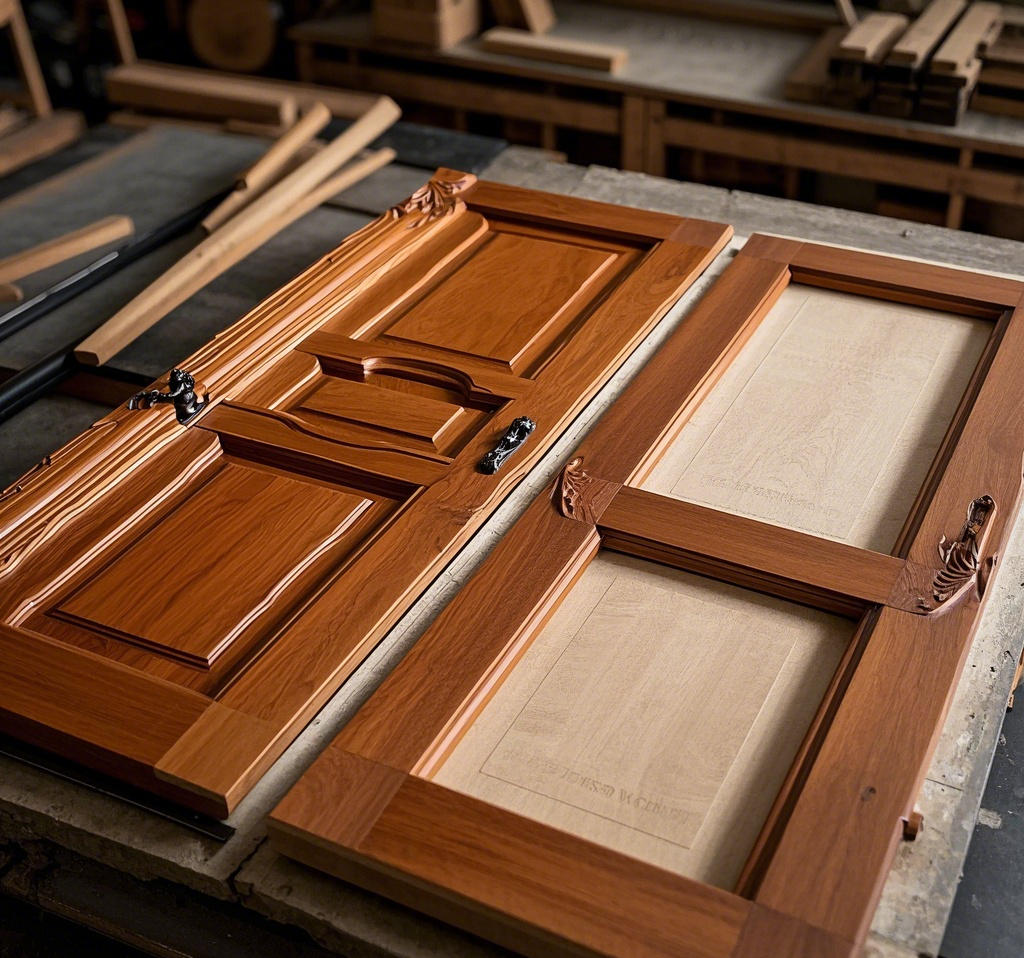Choosing the right doors for your home can be overwhelming, especially when deciding between hollow core and solid wood doors. While solid wood doors are a popular choice for entryways due to their durability and timeless appeal, they are also suitable for interior spaces, offering a classic and sophisticated look. On the other hand, hollow core doors provide a budget-friendly alternative that works well in certain areas of the home.
In this article, we will explore the differences between hollow core and solid wood doors, outlining their benefits, drawbacks, and key factors to consider when making your decision.

Comparing Solid Wood Doors and Hollow Core Doors for Interior Spaces
When selecting interior doors for your home, the choice between solid wood and hollow core doors can significantly impact not only the aesthetics but also your budget. Since an average home may have around 20 interior doors, making the right choice is crucial for both functionality and cost-effectiveness.
Solid wood doors are crafted from either hardwood or softwood, with popular options including oak, mahogany, pine, cherry, and maple. While many wooden doors appear to be solid, some are actually veneered over a core material. A traditional six-panel pine door is a common choice for exterior applications but also works well for interior spaces. Meanwhile, hollow core doors, constructed with a thin wood veneer over a lightweight core—often made of cardboard or composite materials—are an affordable and practical alternative.
Benefits of Solid Wood Doors
Solid wood doors offer excellent soundproofing, creating a quieter and more private indoor environment. Due to their solid construction, they are sturdy, durable, and provide better insulation, helping to maintain stable indoor temperatures. These doors can also be stained, painted, or customized to match your home’s design.
For areas where privacy and soundproofing are essential, such as bedrooms, home offices, and bathrooms, solid wood doors are a superior option. However, to balance budget and performance, you can mix and match—installing solid doors in high-traffic or noise-sensitive areas while using hollow core doors for less critical spaces like pantries or closets.

Factors to Consider When Choosing Solid and Hollow Core Doors
Although solid wood doors are an excellent choice for both interior and exterior applications, they may not always be the most practical option. There are three main types of interior doors:
Solid Wood Doors – Made from a single piece of hardwood or softwood, offering unmatched durability and aesthetics.
Solid Core Doors – Constructed with an exterior veneer over a wood fiber core, providing a balance between strength and affordability.
Hollow Core Doors – Feature a thin wood veneer over a lightweight interior, making them a budget-friendly option.
For exterior applications, solid wood doors should be crafted from high-quality hardwoods like oak or maple, or durable softwoods such as pine. These materials provide superior strength, insulation, and security.
For interior applications, hollow core doors are widely used due to their affordability and ease of installation. Solid core doors, which offer better soundproofing than hollow core doors, serve as a middle-ground option, combining affordability with improved performance.

Pros and Cons of Solid and Hollow Core Doors
Solid Wood Doors
✅ Pros:
Elegant and high-end appearance
Excellent sound insulation
Strong and durable
Energy-efficient and insulating
❌ Cons:
Expensive, especially for high-quality hardwoods
Susceptible to warping due to humidity fluctuations
Heavy, making installation more labor-intensive
Hollow Core Doors
✅ Pros:
Lightweight and easy to install
Cost-effective option for multiple interior doors
More resistant to humidity-related expansion and contraction
❌ Cons:
Poor soundproofing
Limited fire resistance
Less durable and prone to damage
Hollow core doors are widely used in modern homes for interior spaces where security and sound insulation are not a priority. While these doors may be lightweight, they are not completely hollow—most contain a structured core to maintain stability. However, they are not suitable for exterior use as they can be easily compromised.
When selecting doors for your home, it’s essential to balance aesthetics, budget, and functionality. While solid wood doors provide superior durability and insulation, hollow core doors offer a cost-effective solution for areas where these factors are less important.

Find the Perfect Doors for Your Home
Looking for high-quality wooden doors? We offer a wide range of solid wood and hollow core doors to suit every home. Contact us today for expert advice and premium-quality doors that enhance both security and style.
📞 Call Us: +8613827710205
🌐 Visit Our Website: phinodoor.com
📧 Email Us: yunying@fsphino.com
